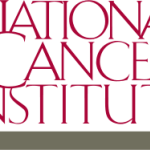- 업종: Government; Health care
- Number of terms: 6957
- Number of blossaries: 0
- Company Profile:
The National Cancer Institute (NCI) is part of the National Institutes of Health (NIH), which is one of 11 agencies that compose the Department of Health and Human Services (HHS). The NCI, established under the National Cancer Institute Act of 1937, is the Federal Government's principal agency for ...
An orally bioavailable bis-dioxopiperazine and a derivative of the chelating agent ethylenediaminetetraacetic acid (EDTA) with antineoplastic, antiangiogenic, and antimetastatic activities. Razoxane specifically inhibits the enzyme topoisomerase II without inducing DNA strand breaks, which may result in the inhibition of DNA synthesis and cell division in the premitotic and early mitotic phases of the cell cycle. This agent may also exhibit antiangiogenic and antimetastatic activities although the precise molecular mechanisms of these actions are unknown.
Industry:Pharmaceutical
An orally bioavailable cell division cycle 7 homolog (CDC7) kinase inhibitor with potential antineoplastic activity. CDC7 kinase inhibitor BMS-863233 binds to and inhibits the activity of CDC7, which may result in the inhibition of DNA replication and mitosis, the induction of tumor cell apoptosis, and the inhibition of tumor cell proliferation in CDC7-overexpressing tumor cells. CDC7, a serine-threonine kinase overexpressed in a variety of tumor cell types, plays an essential role in the initiation of DNA replication by activating origins of replication.
Industry:Pharmaceutical
An orally bioavailable cell division cycle 7 homolog (CDC7) kinase inhibitor with potential antineoplastic activity. CDC7 kinase inhibitor NMS-1116354 binds to and inhibits the activity of CDC7, which may result in the inhibition of DNA replication and mitosis, the induction of tumor cell apoptosis, and the inhibition of tumor cell proliferation in CDC7-overexpressing tumor cells. The serine-threonine kinase CDC7 initiates DNA replication by phosphorylating MCM2 (minichromosome maintenance complex component 2) at Ser40 and Ser53.
Industry:Pharmaceutical
An orally bioavailable combination tablet containing the semisynthetic camptothecin derivative irinotecan and the multidrug resistance (MDR) efflux pump P-glycoprotein (P-gp) inhibitor HM30181AK, with potential antineoplastic activity. HM30181A binds to P-gp and prevents the P-gp-mediated efflux of irinotecan from tumor cells, which may result in greater intracellular concentrations of irinotecan and enhanced cytotoxicity. Retained intracellularly, the prodrug irinotecan is converted, by a carboxylesterase-converting enzyme, to the biologically active metabolite 7-ethyl-10-hydroxy-camptothecin (SN-38). SN-38 inhibits topoisomerase I activity by stabilizing the cleavable complex between topoisomerase I and DNA, resulting in DNA breaks that inhibit DNA replication and trigger apoptotic cell death. P-gp, encoded by the MDR-1 gene, is a member of the ATP-binding cassette (ABC) superfamily of transmembrane transporters and is overexpressed by some MDR tumors, preventing the intracellular accumulation of various cytotoxic agents.
Industry:Pharmaceutical
An orally bioavailable cyclin dependent kinase (CDK) inhibitor with potential antineoplastic activity. Pan-CDK inhibitor BAY1000394 selectively binds to and inhibits the activity of CDK1/Cyclin B, CDK2/Cyclin E, CDK4/Cyclin D1, and CDK9/Cyclin T1, serine/threonine kinases that play key roles in the regulation of the cell cycle progression and cellular proliferation. Inhibition of these kinases leads to cell cycle arrest during the G1/S transition, thereby leading to an induction of apoptosis, and inhibition of tumor cell proliferation. CDKs are often dysregulated in cancerous cells.
Industry:Pharmaceutical
An orally bioavailable derivative of thalidomide with potential immunomodulating, antiangiogenic and antineoplastic activities. Although its exact mechanism of action has yet to be fully elucidated, pomalidomide appears to inhibit TNF-alpha production, enhance the activity of T cells and natural killer (NK) cells and enhance antibody-dependent cellular cytotoxicity (ADCC). In addition, pomalidomide may inhibit tumor angiogenesis, promote cell cycle arrest in susceptible tumor cell populations, and stimulate erythropoeisis.
Industry:Pharmaceutical
An orally bioavailable diaminopyrimidine cyclin-dependent kinase inhibitor (CDKI) with potential antineoplastic activity. CDKI R547 selectively binds to and inhibits CDKs, especially CDK1/cyclin B, CDK2/cyclin E, and CDK4/cyclin D1. The inhibition of CDKs results in cell cycle arrest, inhibition of tumor cell proliferation, and induction of apoptosis. Through CDK inhibition, this agent also reduces phosphorylation of the retinoblastoma (Rb) protein, thus preventing activation of transcription factor E2F and so further suppressing tumor cell proliferation. CDKs are ATP-dependent serine/threonine kinases that are important regulators of cell cycle progression and are frequently overexpressed in tumor cells.
Industry:Pharmaceutical
An orally bioavailable dual kinase inhibitor of c-Met (hepatocyte growth factor receptor) and VEGFR-2 (vascular endothelial growth factor receptor-2) tyrosine kinases with potential antineoplastic activity. C-Met/VEGFR kinase inhibitor E7050 binds to and inhibits the activities of both c-Met and VEGFR-2, which may inhibit tumor cell growth and survival of tumor cells that overexpress these receptor tyrosine kinases. C-Met and VEGFR-2 are upregulated in a variety of various tumor cell types and play important roles in tumor cell growth, migration and angiogenesis.
Industry:Pharmaceutical
An orally bioavailable dual receptor tyrosine kinase (RTK) inhibitor with potential antineoplastic activity. Afatinib irreversibly binds to and inhibits human epidermal growth factor receptors 1 and 2 (EGFR-1; HER2), which may result in the inhibition of tumor growth and angiogenesis. EGFR/HER2 are RTKs that belong to the EGFR superfamily; both play major roles in tumor cell proliferation and tumor vascularization and are overexpressed in many cancer cell types.
Industry:Pharmaceutical
An orally bioavailable formulation of the ansamycin derivative 17-amino-17-demethoxygeldanamycin (17-AG) with potential antineoplastic activity. Oral Hsp90 inhibitor IPI-493 binds to and inhibits Hsp90, which may result the in growth inhibition in sensitive tumor cell populations. Hsp90, a 90 kDa molecular chaperone, may be highly expressed in tumor cells, playing a key role in the conformational maturation, stability and function of other substrate or "client" proteins within the cell; many of these client proteins are involved in signal transduction, cell cycle regulation and apoptosis, and may include kinases, transcription factors and hormone receptors.
Industry:Pharmaceutical
